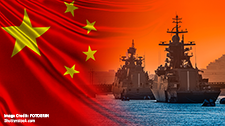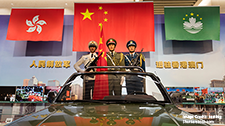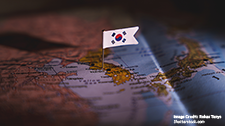Asia Program

The Asia Program – alongside the Silk Road Studies Program – forms a core part of the Institute for Security and Development Policy (ISDP). It encompasses the Stockholm Center for South Asian and Indo-Pacific Affairs, the Stockholm China Center, the Stockholm Korea Center, and the Stockholm Taiwan Center.
The Program conducts research designed to guide and inform about the current issues of various conflicts, complex security, and development challenges in the Asian region focusing on Northeast Asia, Southeast Asia, and South Asia. As such, it implements policy-oriented and practical research. The main objectives are not only to be a bridge between academia and policy but also to provide strategic insights and policy recommendations to decision-makers in governments, international institutions, and the private sector through five main channels: Impartial research; publications and newsletters; workshops and conferences; teaching and training; and formal and informal discussions.
Its research activities cover such areas as conflict prevention and crisis management, economic development, regional cooperation, legal development, traditional and non-traditional security, social and cultural changes, domestic development, and foreign policy in the region.
The Asia Program has a well-established and formalized cooperation with leading research and/or policy institutes in Asia. These collaborations do not only contribute to a more dynamic research environment, but they also facilitate in distributing our research in the region.
It is led by Dr. Niklas Swanström (ISDP Director).
Origin
The Asia Program was established in July 2007. With the initiation of the ISDP, the Asia Program was created to cover geographic research areas focusing on Northeast Asia, Southeast Asia, and South Asia as a key pillar of ISDP’s research.
The ambition of this Program is to examine how Asia and its sub-regional blocs interrelate in the fields of security, conflict, and development and to highlight the strategic significance of the greater Asian region, the security interdependence that all states share, and how regional and bilateral cooperation are the only ways to promote a more peaceful continent.
Publications
Through its Asia Program, the ISDP publishes the Asia Paper Series as well as books and monographs. In addition to these publications, our researchers also produce a wide range of articles, policy briefs, and reports.
Events
The Asia Program regularly invites scholars and other distinguished experts to speak at our ISDP Forums. The forums usually take the form of a lecture or presentation with the intent to update the research and policy communities in Stockholm about current issues in Asia. The invited speakers come from a range of different organizations and include scholars, diplomats, policymakers, and journalists. The ISDP Forums aim to encourage public discussion and the sharing of ideas and knowledge.
In addition to these forums, the Asia Program also arranges conferences, seminars, and workshops to explore and discuss contemporary regional issues in a more intimate setting.
Related News
Related Publications
-
Safeguarding the Global Chip Supply: Lessons from PRC’s Technology Acquisition Tactics in Taiwan
Taiwan’s technological advantage, especially in the semiconductor sector, serves as a key factor for deterring a Chinese invasion. However, there are documented cases of the PRC using multiple strategies to […]
-
Safeguarding the Indo-Pacific Region: Insights from Australia on Maritime Security
Contextual Background In an era marked by rapid geopolitical transformation and unprecedented technological advances, maritime security in the Indo-Pacific has become a critical imperative for both national and regional stability. […]
-
China’s Military-Civil Fusion in Space: Strategic Transformations and Implications for Europe
Key takeaways China’s Military-Civil Fusion (MCF) strategy is a multi-purpose tool to enhance national power, accelerate technological innovation, and drive industrial and economic development. MCF has reshaped China’s space […]
-
Will South Korea Distance Itself from the US Under President Lee?
South Korea has recently undergone a significant power transition, with Lee Jae-myung taking office as President, signaling a potential recalibration of its foreign policy. This change in leadership could usher in a […]
-
From Domination to Co-Creation: How Taiwan Sustains Semiconductor Leadership through Adaptive Industrial Policy
Amid heightened geopolitical tensions, global supply chains are experiencing an unprecedented realignment. Semiconductors have emerged as a strategic asset, an industry where Taiwan has cemented global leadership. Its tech expertise, […]



